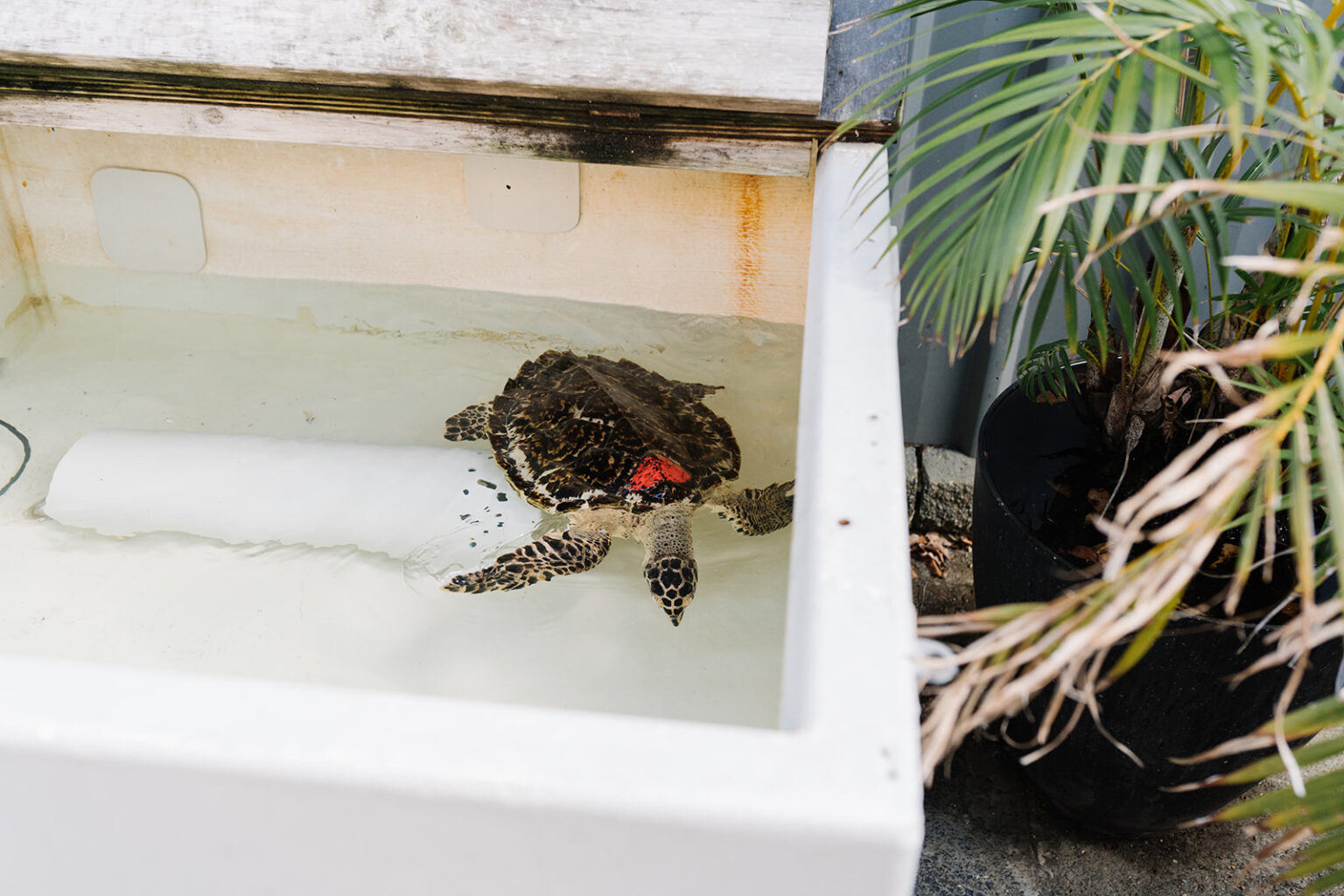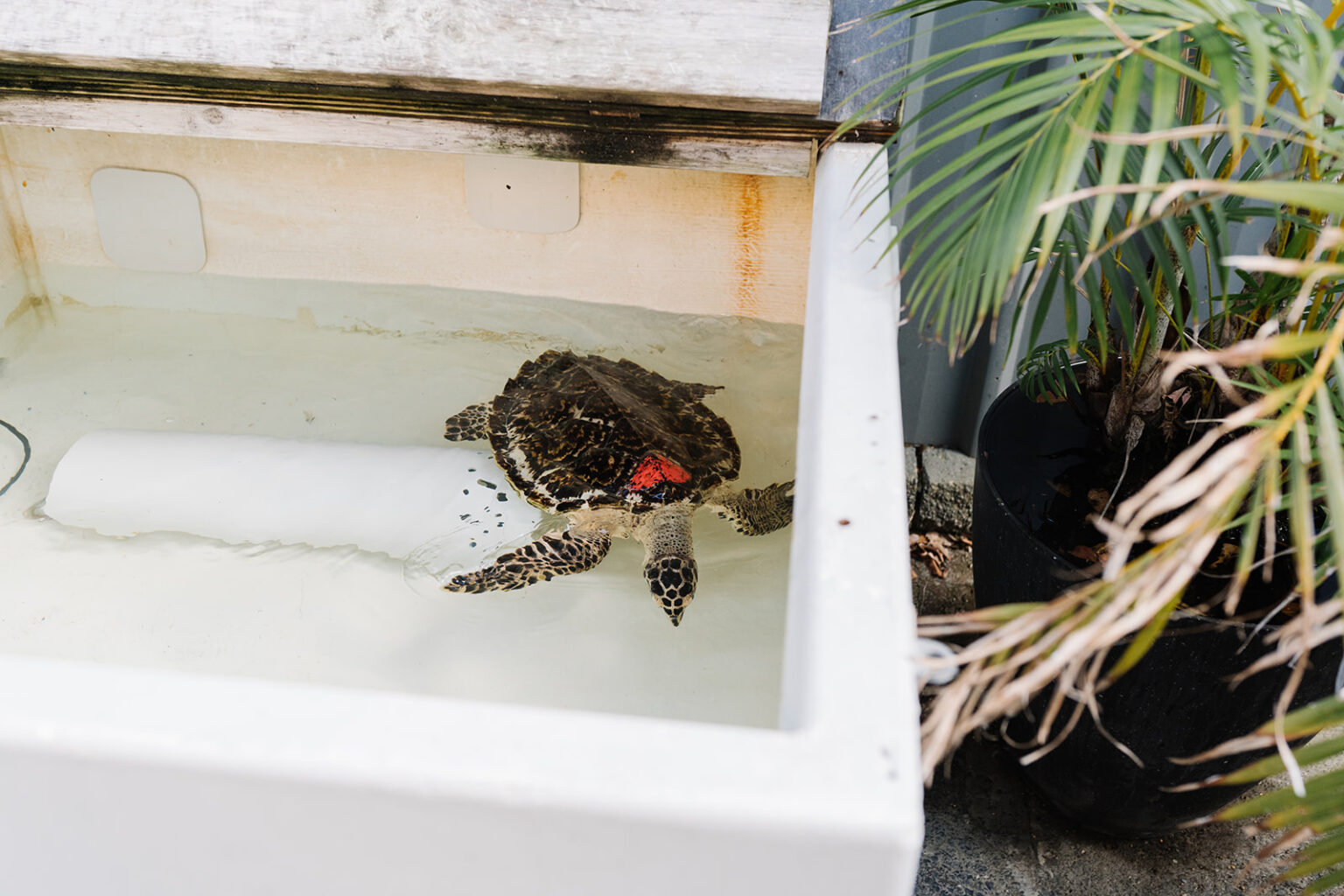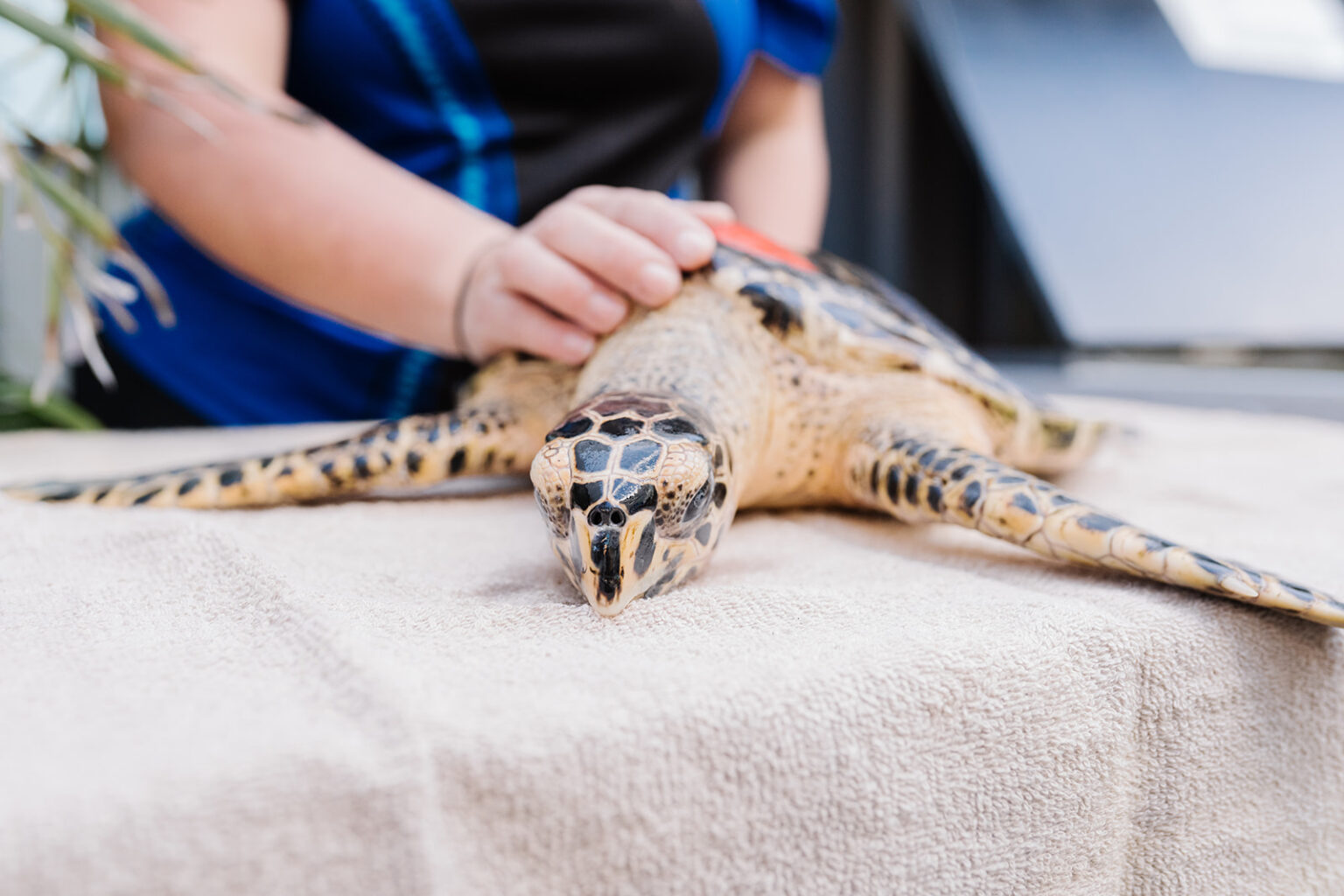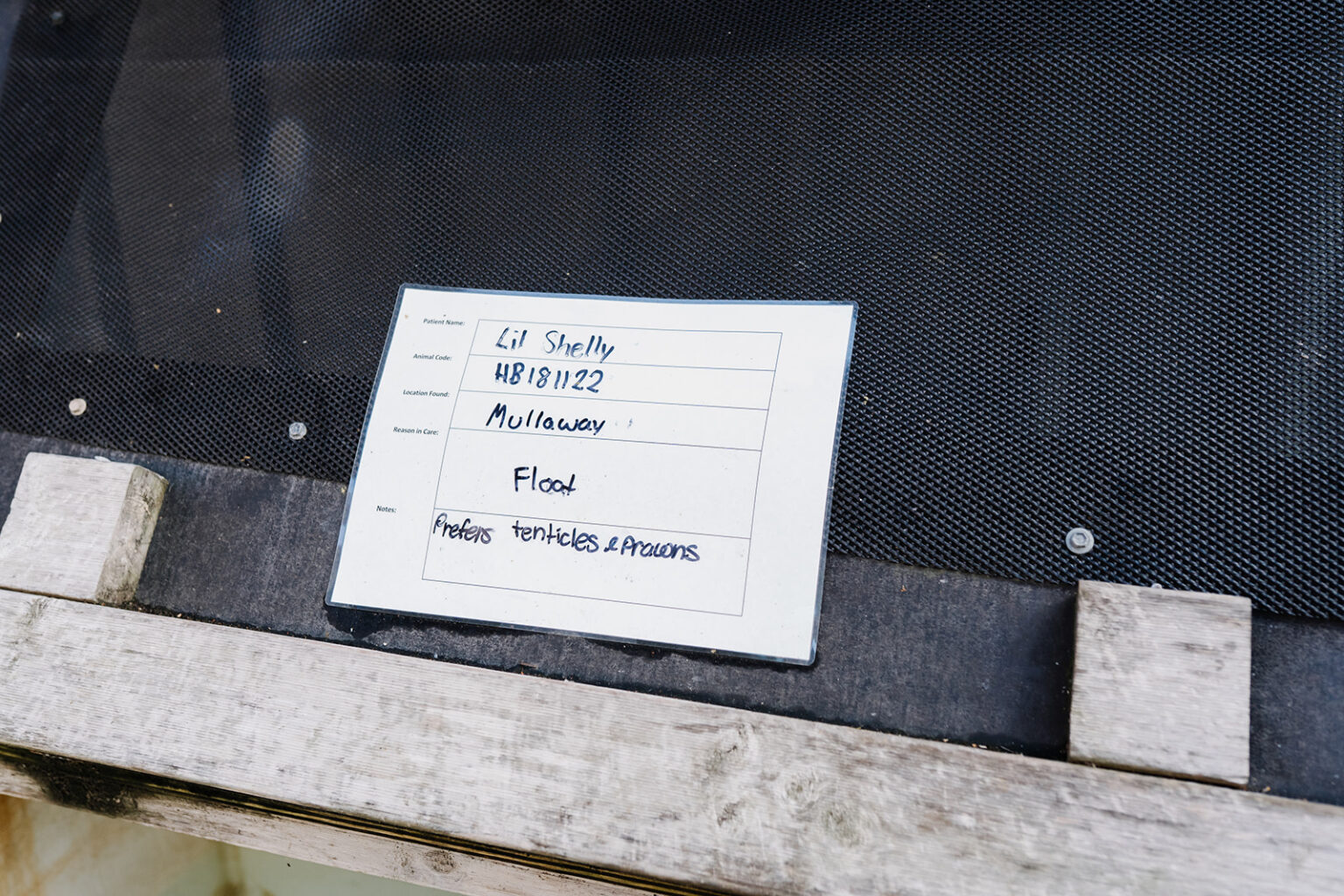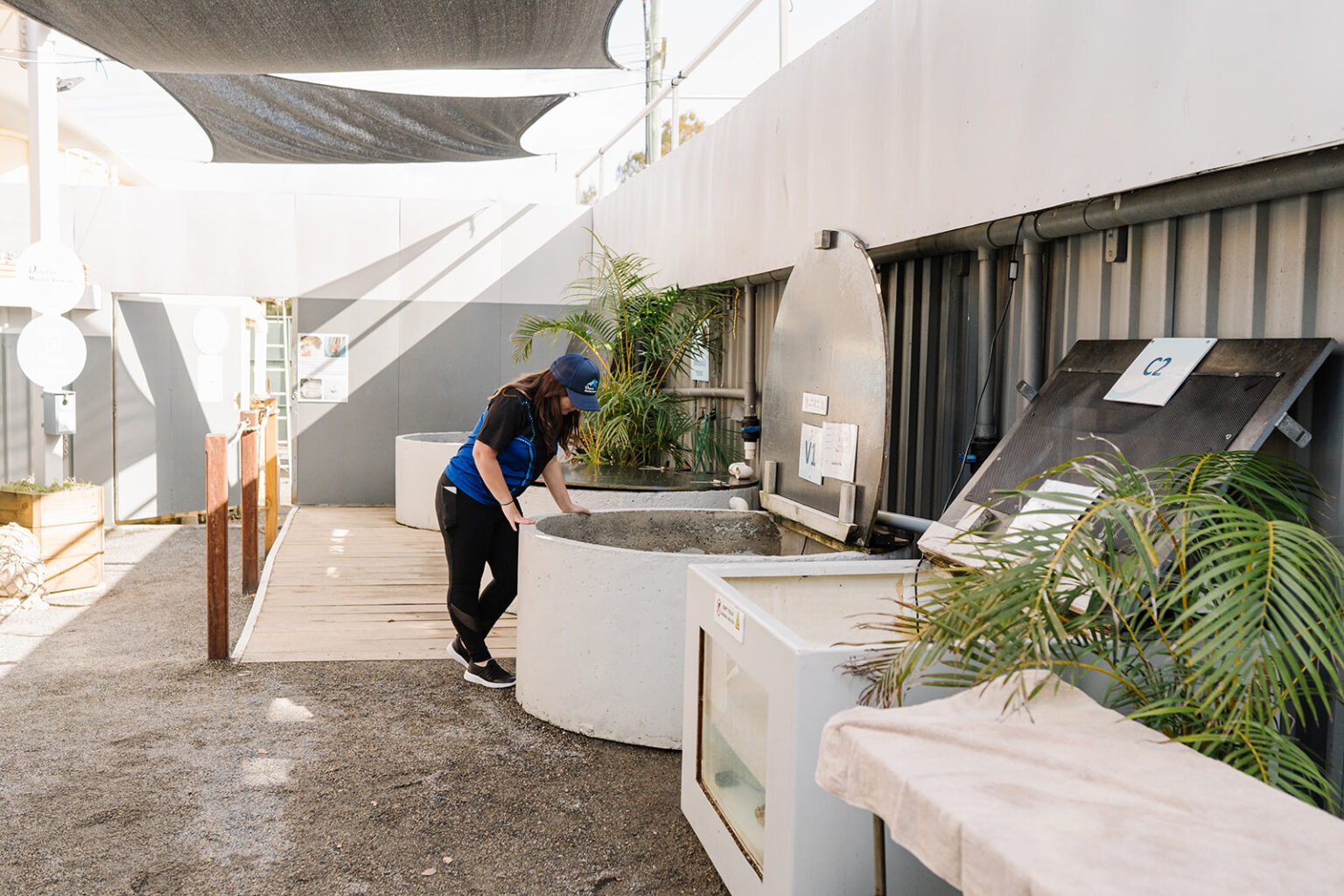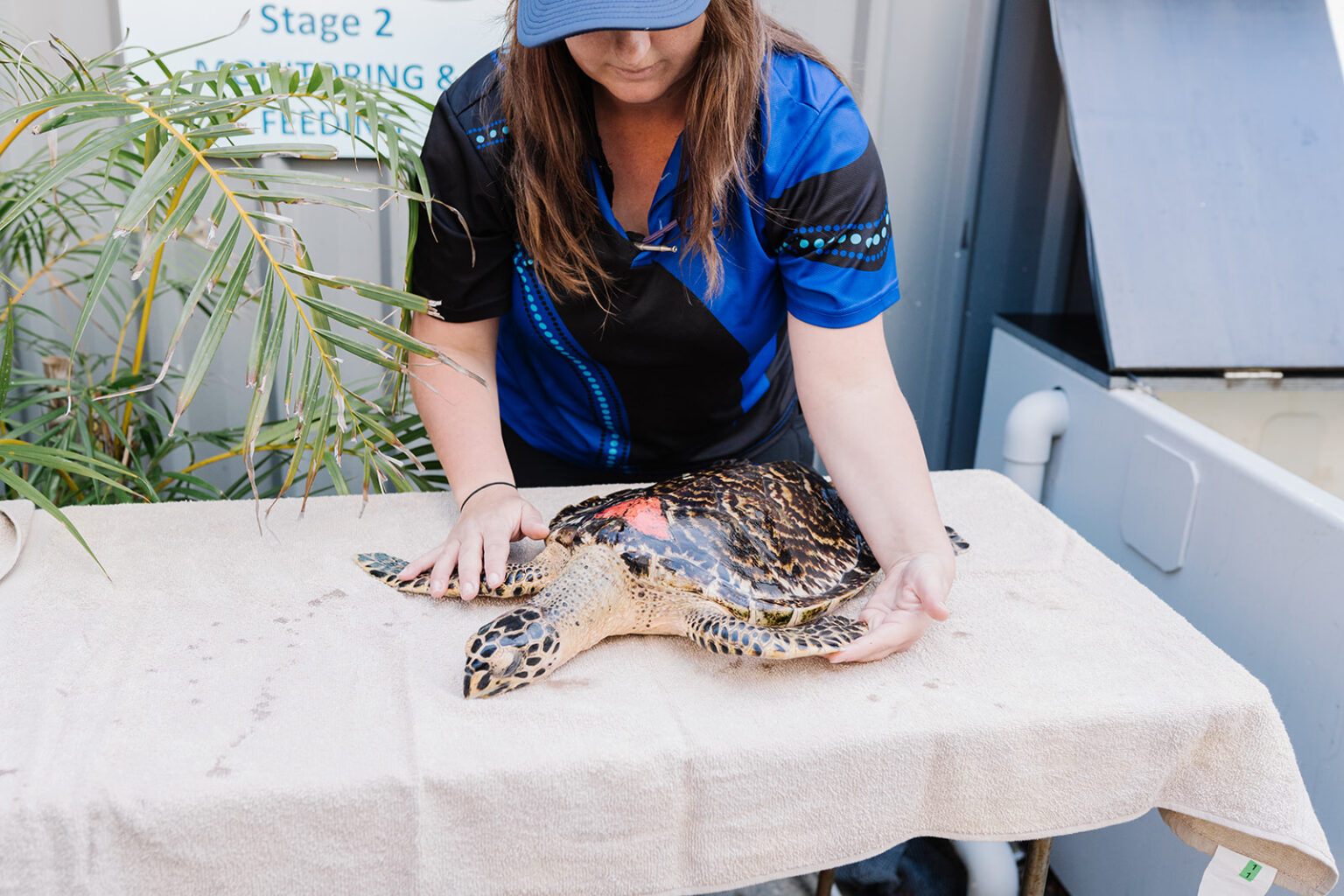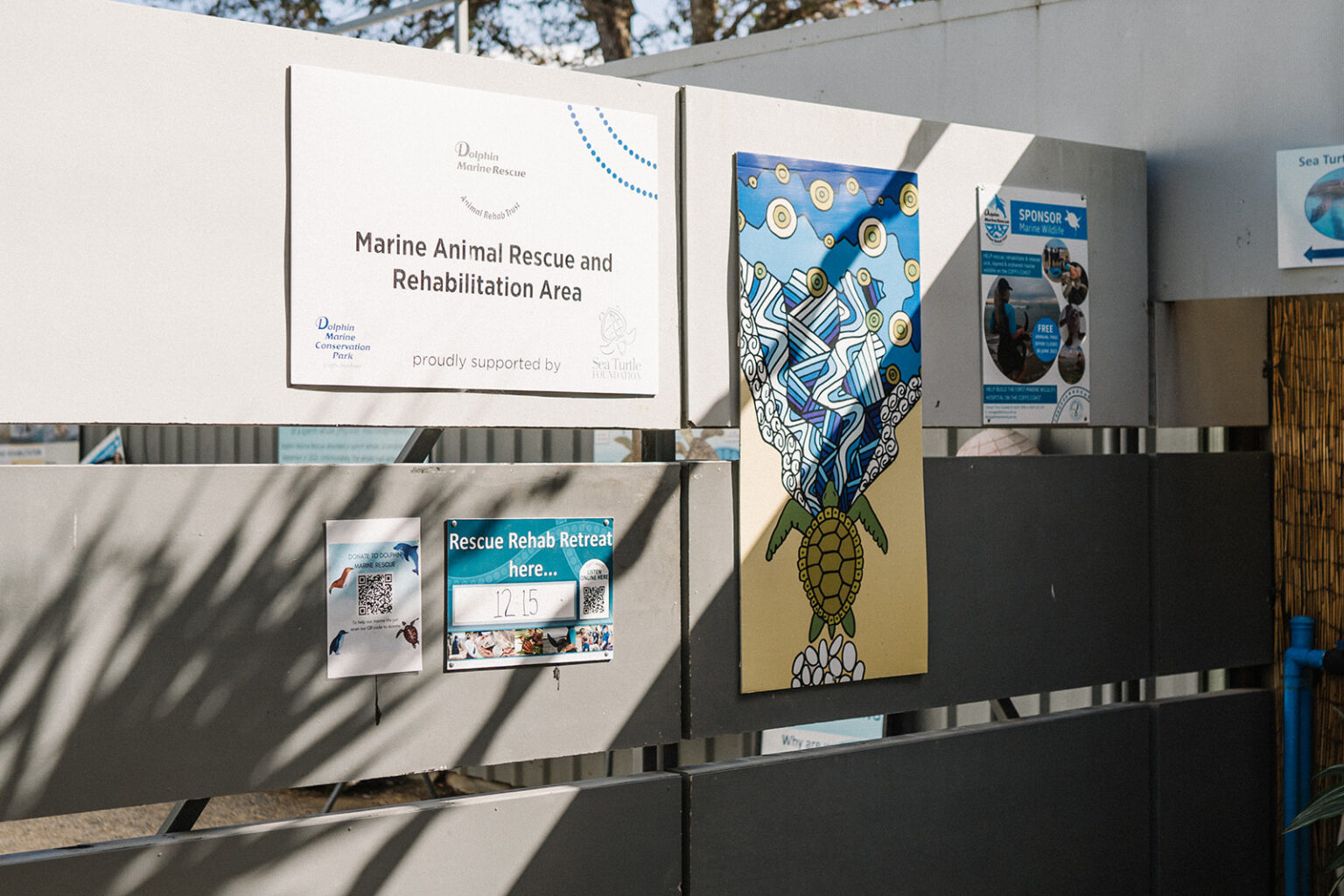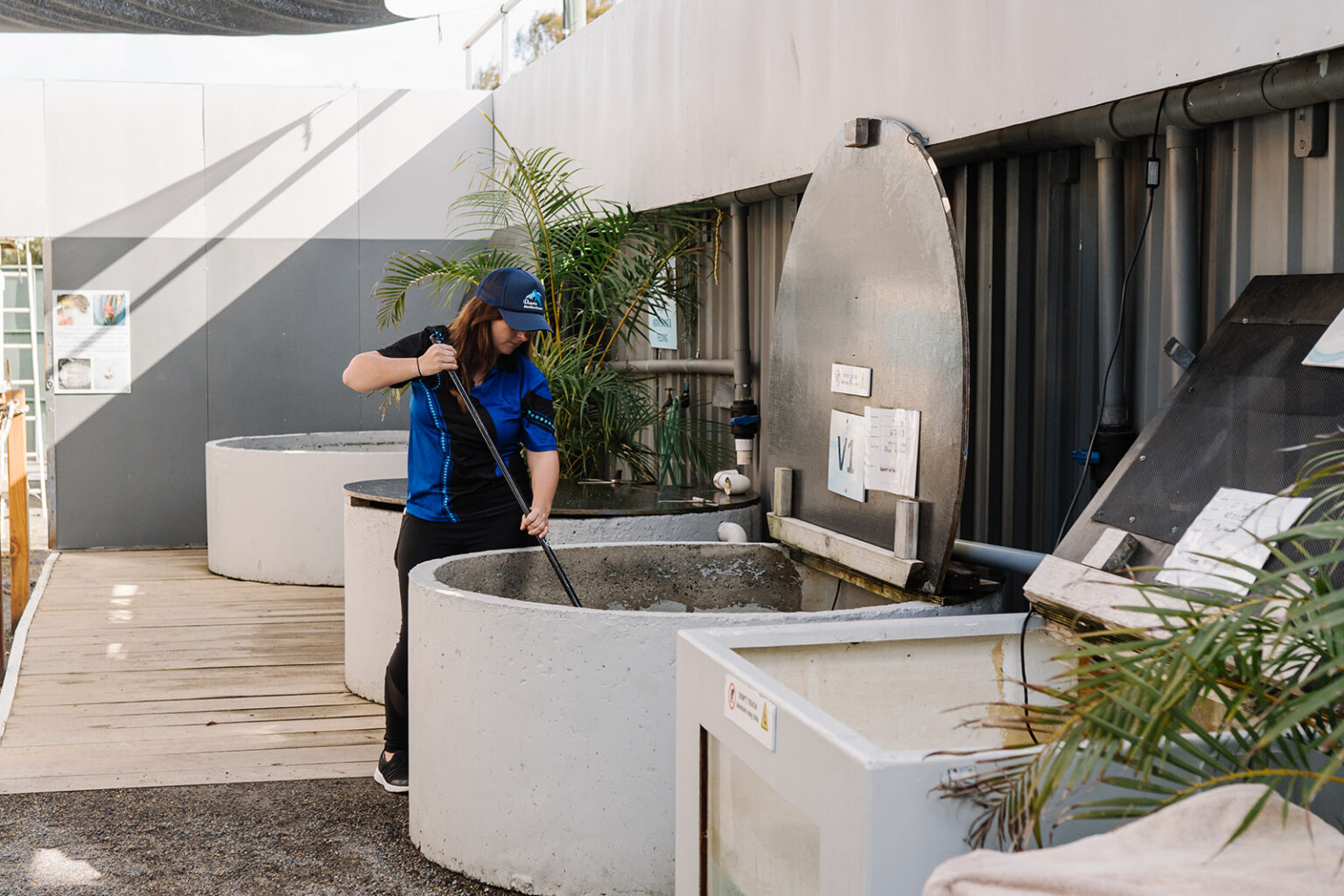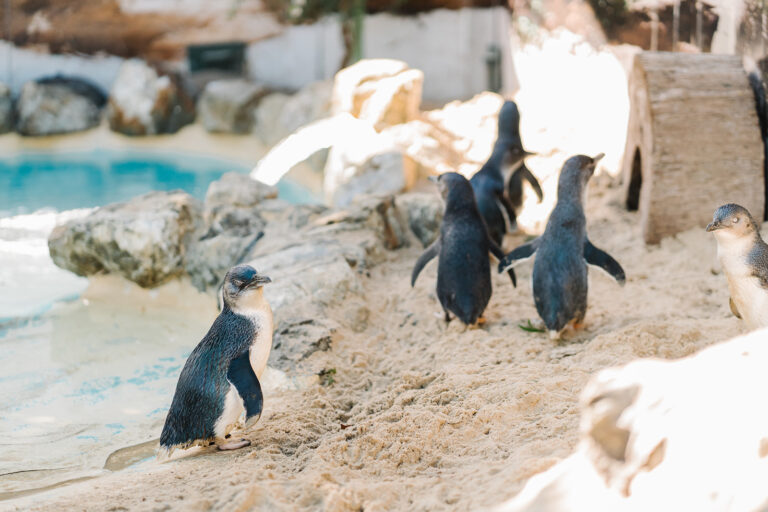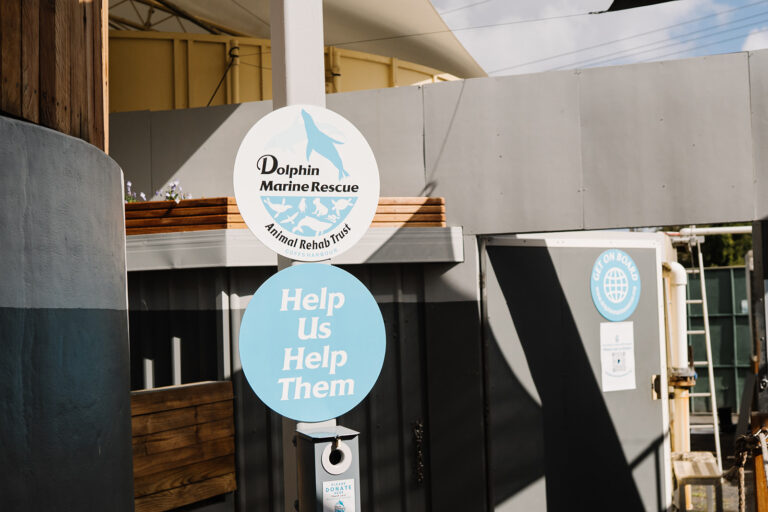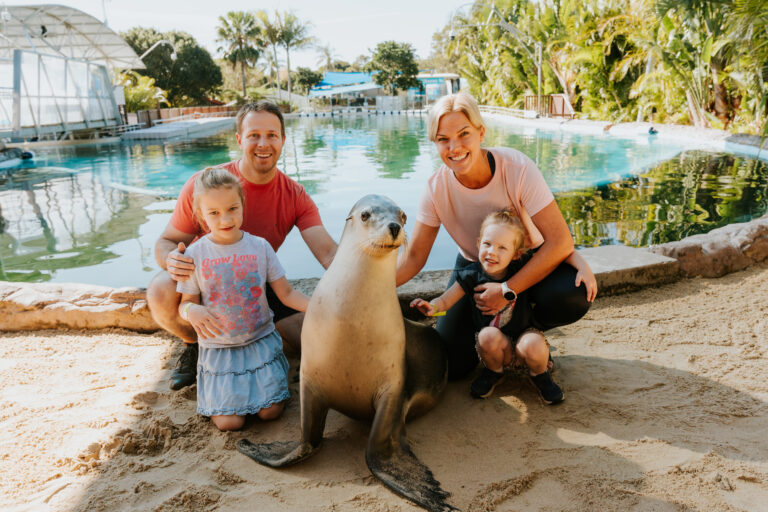Since opening 52 years ago, Coffs Coast Wildlife Sanctuary (formerly Dolphin Marine Conservation Park) has dedicated countless hours and resources to rescuing and rehabilitating injured Coffs Coast marine life.
Each year, the park saves over 400 animals – and roughly 200 of these are turtles
At the park, injured turtles undergo thorough treatment – from surgery to remove flippers to ultrasounds and X-rays, and medications and blood tests.
There are three stages of rehabilitation. During the first stage, the team will weigh, measure and assess the turtle. They’ll then quarantine it for 48 hours before it’s moved to a second pool to recover its strength.
Turtles often spend months in recovery, living in their own heated pools and being fed high-fat foods like fish or squid to build up their weight.
Some, like Lil Shelly, the endangered Hawksbill Sea Turtle, are particularly finicky. She’s been described as “the fussiest turtle we’ve ever had” and will only accept tentacles and prawns for dinner.
Lil Shelly was rescued in Mullaway almost 10 months ago and is still being treated. Her carers are hopeful she’ll be fit for release in the warmer months.
The final stage of treatment is pre-release, where the turtles are moved into a bigger pool and transitioned to a diet of lettuce.
When they’re ready, they’ll be released in the same location they were found.
This is a proud moment for their care team who spend months caring for and getting to know each turtle.
The cost of treating rescued turtles is roughly $200,000 each year, funded entirely by the park.
But the team say it’s worth it – they have a very high rehabilitation success rate and have only been unable to release two rescued turtles in their 52 years.
Due to medical conditions, those two turtles were unable to hunt for their own food and were given permanent homes – one at the Coffs Coast Wildlife Sanctuary and one at a park in another state.
This rehabilitation process is also important for turtle conservation – the team sends test results to scientists for research samples, which helps them uncover information that could help save the species.
Coffs Coast Wildlife Sanctuary’s turtle rehabilitation program is a vital contribution to the Coffs Coast marine ecosystem and to turtle conservation more broadly.
You can support the Coffs Coast Wildlife Sanctuary by:
Read more stories about Coffs Coast Wildlife Sanctuary
